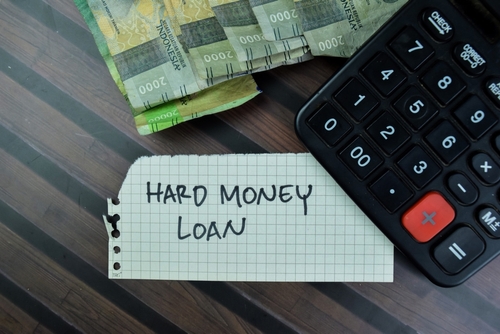Benefits of Real Estate Investing in Maryland
Real estate investing in Maryland is an excellent way to start an investment portfolio and potentially generate passive income. That said, there are several different ways to invest, including various property types and investment strategies. Today, we’ll review some of the benefits of investing in real estate, different ways to fund your investment, and how to manage an investment property.

Contents of This Article:
- What Is an Investment Property?
- Benefits of Real Estate Investing in Maryland
- Different Ways to Fund Your Real Estate Investment
- How to Manage Your Real Estate Investment
- Finance Your Investment With MHML Today
What Is an Investment Property?
An investment property is a real estate property purchased with the intention of generating income or appreciation rather than for personal use. Typically, the goal of an investment property is to make a profit, whether it’s through rental income, property value appreciation, or both.
That said, real estate investing in Maryland comes in various forms, including the following.
- Residential Rental Properties- These are properties like houses, apartments, or condos that you rent out to tenants. Then, you can generate income with monthly rental payments.
- Commercial Properties- These include properties like office buildings, retail spaces, warehouses, and other non-residential spaces. They’re typically leased to businesses or individuals for commercial use.
- Multi-Family Properties- These are buildings with multiple separate living units, like duplexes, triplexes, or apartment complexes. Investors rent out each unit individually, which can provide multiple streams of rental income.
- Vacation Rentals- These types of rentals are vacation homes you can rent out on a short-term basis to travelers or vacationers. They could be single-family homes, condos, or even individual rooms in a home.
- Industrial Properties- These include properties like factories, warehouses, and distribution centers. Typically, they’re used for manufacturing or storage purposes.
That said, investors looking at investment properties may have various strategies for obtaining and maintaining them. Here are some popular investment strategies.
- Buy and Hold- Purchasing a property and holding onto it for an extended period of time, typically renting it out to generate rental income.
- Fix and Flip- Buying properties that need renovations or repairs, making necessary improvements, and selling the property for a profit.
- Development- Purchasing land or properties with the intention of developing them into new residential or commercial projects.
Benefits of Real Estate Investing in Maryland
Real estate investing in Maryland can offer several benefits for investors. Not only is it a great location, but it’s an excellent way to generate income, whether it’s with a rental property or a fix-and-flip project. Here are some of the potential advantages.

- Steady Rental Income
- Appreciation Potential
- Diverse Economy
- Proximity to Major Cities
- Resilience to Economic Downturns
Steady Rental Income
Maryland has a strong rental market, particularly in areas like Baltimore, Columbia, and Rockville. That said, investing in rental properties can provide a steady stream of rental income, which can help cover mortgage payments and generate positive cash flow.
Appreciation Potential
Over time, the value of real estate in Maryland may appreciate, allowing investors to build equity. This can be particularly relevant in desirable neighborhoods or areas experiencing growth and development.
Diverse Economy
Maryland is known for its diverse economy, with a strong presence in industries like biotechnology, healthcare, education, and government. This economic diversity can contribute to a stable real estate market, as it’s less reliant on one single industry.
Proximity to Major Cities
Maryland’s proximity to major metropolitan areas like Washington, DC, and Baltimore can be a significant advantage. These cities offer a wide range of employment opportunities, cultural amenities, and educational institutions, making them attractive to renters and potential buyers.
Resilience to Economic Downturns
Due to its diverse economy and proximity to major metropolitan areas, Maryland’s real estate market may demonstrate resilience in the face of economic downturns.
Different Ways to Fund Your Real Estate Investment
There are several ways to fund a real estate investment. That said, the method you choose will likely depend on your financial situation, risk tolerance, and investment goals. Here are some common ways to fund real estate investments.
- Cash- Using your own savings or liquid assets to purchase a property outright is difficult but one of the most straightforward ways to fund an investment. This method avoids taking on debt, leading to potentially higher profit margins. However, it’s not feasible for most investors, especially those just starting out.
- Traditional Mortgage- Obtaining a mortgage from a bank or financial institution is a common way to finance real estate investments. They’ll look at your creditworthiness and property value to determine a loan amount, which you’ll repay in monthly installments over the agreed-upon term.
- Home Equity Line of Credit (HELOC)- If you already own a property, you may be able to use a HELOC to access the equity in your home. This can provide funds for a down payment or other expenses related to a real estate investment.
- Real Estate Crowdfunding- This involves pooling money with other investors to collectively invest in real estate projects. Online platforms facilitate these investments, allowing individuals to invest in properties they might not be able to afford individually.

- Hard Money Loans- Hard money lenders are companies or individuals that provide short-term loans with higher interest rates. Generally, they’re based on the property’s value rather than the borrower’s creditworthiness. Baltimore hard money lenders typically fund fix-and-flip projects or come in handy when a quick closing is needed to secure a deal.
How to Manage Your Real Estate Investment
Real estate investing in Maryland can be a ton of work. Depending on your investment strategy, some require more work than others. For instance, fix-and-flip projects require in-depth knowledge about renovation work, contracting, and legal compliance with building codes.
On the other hand, rental properties require a number of management tasks, including marketing, tenant screening, rent collection, maintenance, inspections, and more. So, if you don’t have the time to manage your investment property, investing in high-quality property management services is a must.
Finance Your Investment With MHML Today
If you’re looking at real estate investing in Maryland, you’ll want to first figure out how you’ll finance your property. Depending on your strategy, finding a hard money lender to close a deal quickly can be an excellent option. For instance, hard money loans are great for fix-and-flip projects that you can repay quickly after selling the renovated property. Otherwise, if you need to secure a deal quickly while waiting for long-term financing, a hard money loan could be beneficial for that scenario, too.
First, however, you need to find a local lender, like Maryland Hard Money Lenders. Our team of professionals can help you access quick capital for your next investment. So, if you’re looking for a quick and simple way to get funded, start by filling out our initial loan application. From there, we’ll help you get the capital you need to secure your desired property.



